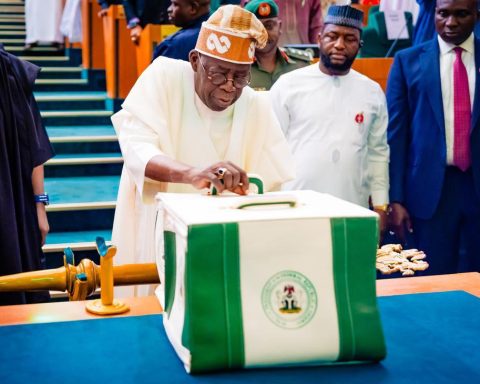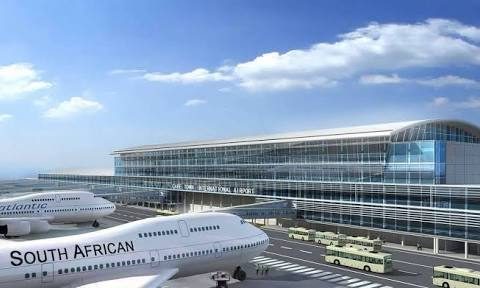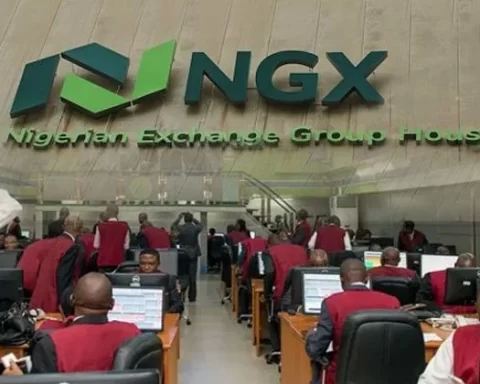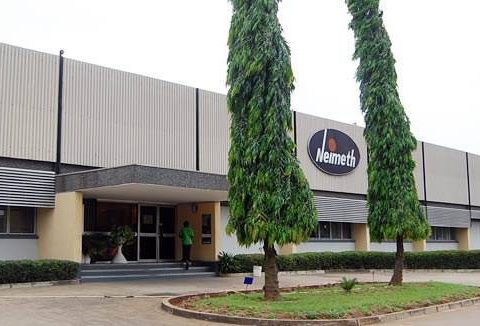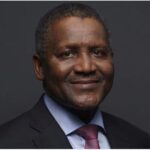The decision of the Nigerian government to extend the timeline for implementation of the 2024 national budget has sparked reactions from Nigerians who frowned at the recurring practice of running multiple budgets in a single fiscal year.
The National Assembly on Tuesday approved the extension of the deadline for the implementation of the capital component of the 2024 national budget to 31 December 2025.
Join our WhatsApp ChannelDuring the plenary on Tuesday, the Senate adopted a resolution for the extension following the presentation of an appropriation bill requesting its amendment and extension.
The bill, which was sponsored by Solomon Adeola, senator representing Ogun West and chairman of the Senate Committee on Appropriations, passed through first, second, and third readings in one sitting.
Adeola argued that the extension was necessary to enable the federal government to complete several ongoing capital projects captured under the 2024 budget.
Also, the House of Representatives passed for second reading a bill seeking to extend the implementation of the capital aspect of the 2024 approved budget from 30 June to 31 December 2025.
Prime Business Africa reports that this is not the first time the Federal Government has extended the deadline for the implementation of the annual national budget, especially the capital component. Between the last quarter of 2023, after President Bola Tinubu assumed office, and June 2025, the National Assembly has approved the extension of the capital budget implementation deadline about three times.
Tinubu had, towards the end of 2023, requested the National Assembly to extend the spending deadline for 2023 capital projects to 31 March 2024. Following complaints of delays in procurement and project execution, the National Assembly, again, approved extension of the 2023 budget to 30 June 2024. In June 2024, the National Assembly granted the third extension, pushing the deadline for implementation of the 2023 capital budget and supplementary spending to 31 December 2024.
For the 2024 budget, the National Assembly, in December 2024, approved Tinubu’s request, extending the implementation to 30 June 2025. With the latest approval, the timeline now shifts to December 2025.
Reactions
While some supported the action of the government, others kicked against it. Proponents argue that the extension is necessary to ensure the completion of critical projects and allow for proper budget execution.
However, critics have raised concerns about transparency, fiscal discipline, and the potential for mismanagement. They said it is illegal and amounts to running two budgets concurrently in a single fiscal year. Economic analysts warned that prolonged budget cycles could distort planning and weaken accountability.
READ ALSO: National Assembly Inserted 11,122 Projects Worth N6.93trn In 2025 Budget – BudgIT
Public policy analyst and the Lead Director of the Centre for Social Justice, Eze Onyekpere, described the extension as illegal. While noting that Nigeria’s 1999 constitution granted the legislature the authority to determine the financial year, which is based on the general authority to make laws, not in the present situation.
Onyekpere stressed that the lawmakers lack the power to shift implementation of a budget beyond the statutory January to December cycle.
“What they are doing is clearly illegal and unconstitutional,” Onyekpere stated in an interview. With News Central TV.
Continuing, he said the development shows the government is not focused enough on implementing capital projects.
“What is the message in the implementation of the 2025 capital projects if we are still shifting goal posts for the full implementation of the 2024 up to October or December of the following year?”
He further said that what is happening means that the implementation of the 2025 capital project may not have started.
The legal expert stated that the extension of budget implementation beyond the statutory timeline has become a worrisome trend in Nigeria.
According to him, what the government needed to do was to carry over unimplemented capital projects from previous years’ budget to the current one, together with new ones, which the available funds can take care of.
READ ALSO: 2025 Budget: Can Nigeria Achieve N41trn Revenue Target?
A financial expert, Kalu Aja, criticised the budget extension approach and queried how the government intends to raise revenue to fund the 2024 and 2025 capital projects concurrently, considering the current financial strain in the economy.
Comparing the situation to that of a student who missed classes, Mr Aja said: “Why not just take the classes you missed in the 2024 academic year and complete them in 2025? Why pass a new budget? Why not simply make the 2025 capital budget the 2024 capital budget?”
While pointing out that the new budget has new constituency projects, Kalu described the situation as “a mess.”
Chief Economist and Senior Partner at SPM Professionals, Dr Paul Alaje, re-echoed concerns about the lack of financial resources to fund the capital projects concurrently.
Dr Alaje said the extension of capital budget implementation to December 2025 means that the federal government may likely borrow further to fund the capital projects.
Alaje, who pointed out that the 2024 budget cycle ought to have been closed by now, advised that the government should always strive to exhaust budget cycles before presenting fresh ones.
“We have also said that if, for instance, the 2024 budget wasn’t concluded, wait until the New Year before presenting the 2025 budget, but instead, in this scenario, we have two budgets with no funding for implementation,” he said.
The economic expert highlighted the implication of implementing two budgets concurrently. According to hm, it would lead to having more liquidity for the government which affects the monetary policy measures aimed at tackling inflation in the economy.
A Professor of Economics, and former Vice Chancellor, University of Uyo, Akpan Ekpo, said the delay in the implementation of the capital component of the budget will affect growth of the economy, employment, and development generally.
As debates continue, the extension highlights ongoing challenges in Nigeria’s budget process, including delays in approval and execution, which stakeholders say must be addressed for long-term fiscal stability.


